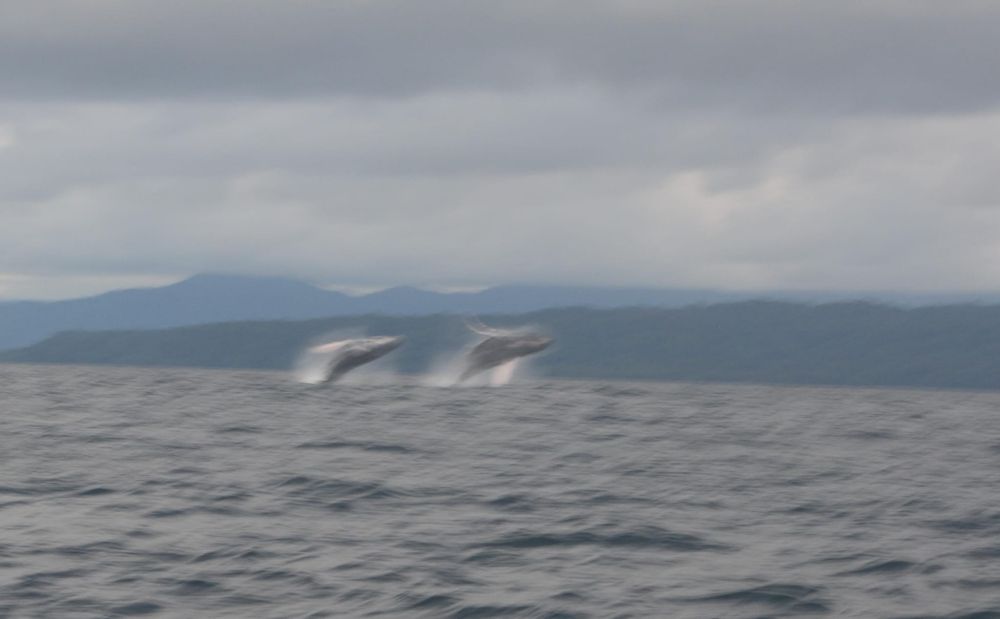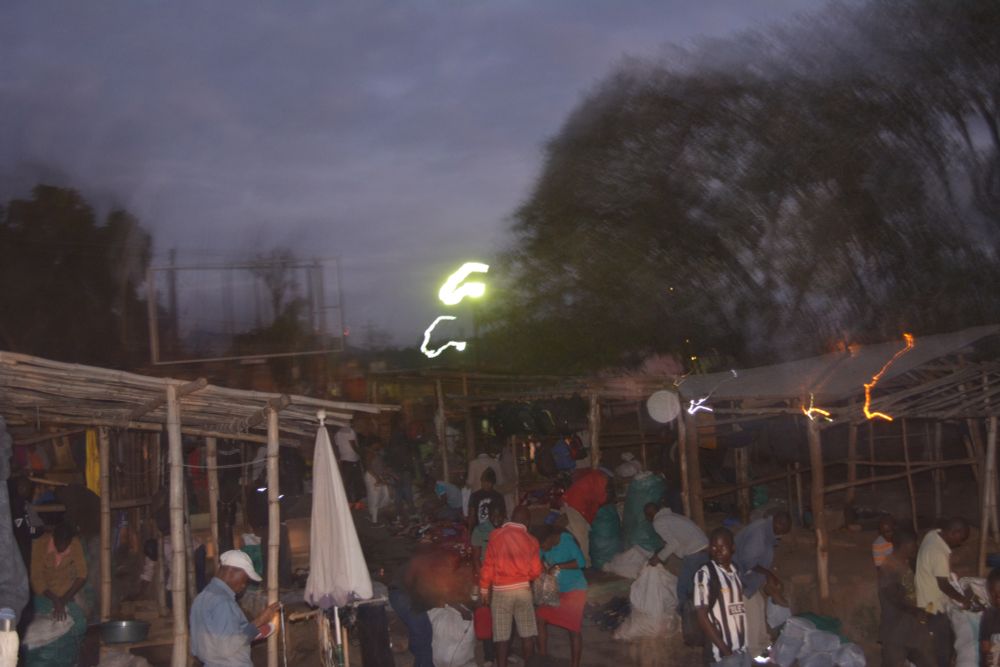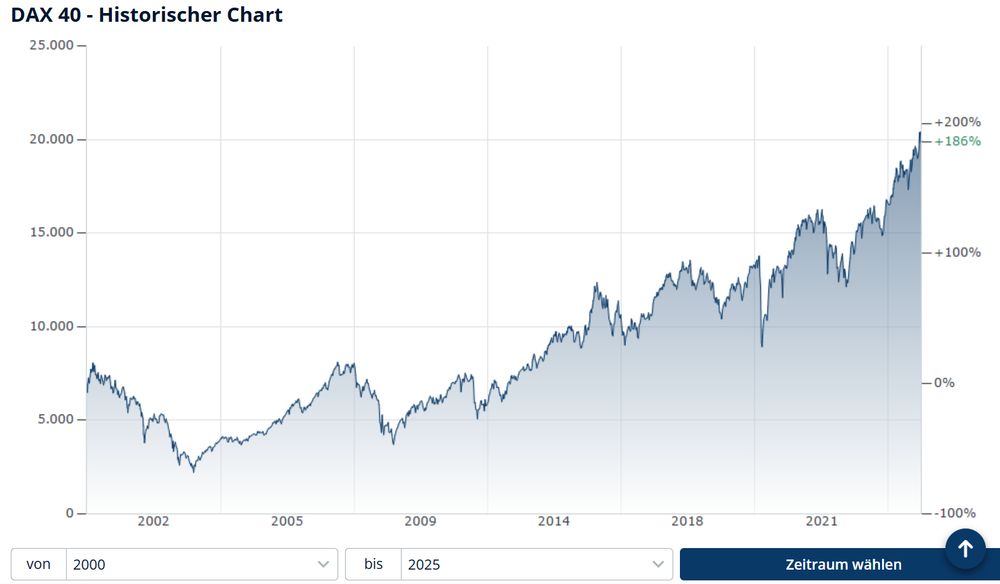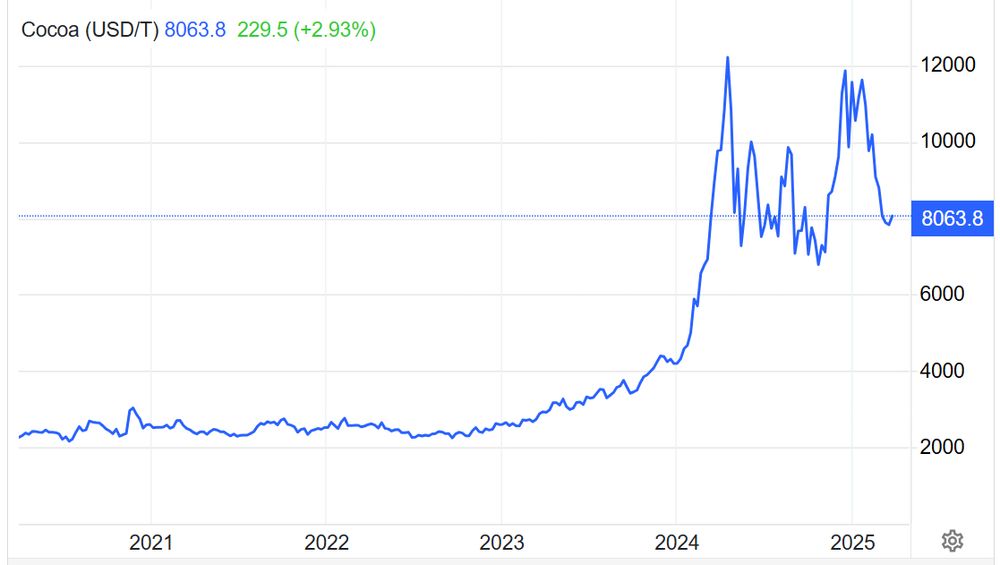
#coffee #cocoa #climateaction
#cyclist #WarOnCars

Was in der Diskussion fehlt ist, dass Männer überwiegend Opfer sind im Verkehr. Die Sicherheitsdiskussion also oft Männerthema, während Frauen von vorneherein nur eingeschränkt am Verkehr teilnehmen aus Angst. #Stadtbild

Was in der Diskussion fehlt ist, dass Männer überwiegend Opfer sind im Verkehr. Die Sicherheitsdiskussion also oft Männerthema, während Frauen von vorneherein nur eingeschränkt am Verkehr teilnehmen aus Angst. #Stadtbild
And incredibly beautiful.

And incredibly beautiful.
Adverse impacts in one region may increase prices, leading to exponentially growing costs for procurement, borrowing or insurance.
Adaptation requires anticipation of climateflation.

Adverse impacts in one region may increase prices, leading to exponentially growing costs for procurement, borrowing or insurance.
Adaptation requires anticipation of climateflation.
Supply chains may be disrupted at production, storage or transport. Heat spoils quality on the tree or at fermentation, rains lead to mold at warehouses, storms disrupt harbours.
Professional services are needed!

Supply chains may be disrupted at production, storage or transport. Heat spoils quality on the tree or at fermentation, rains lead to mold at warehouses, storms disrupt harbours.
Professional services are needed!
Our houses, our health, our mobility can be compromised by heat, storms, floods. We need to find ways to secure our most basic needs.
Adaptation requires better personal infrastructure.

Our houses, our health, our mobility can be compromised by heat, storms, floods. We need to find ways to secure our most basic needs.
Adaptation requires better personal infrastructure.
Climate adaptation needs to be mainstreamed into human development.

Climate adaptation needs to be mainstreamed into human development.

Stay in or go out? Both have a cost, and both are extremely risky.

Stay in or go out? Both have a cost, and both are extremely risky.
But a plant will still be a plant for the time being and there is only so much that can be done to adapt. Many of the options, like shade trees, have clear downsides for the people working the field.

But a plant will still be a plant for the time being and there is only so much that can be done to adapt. Many of the options, like shade trees, have clear downsides for the people working the field.
Again, which one is it? Do we want to reduce risks, or impacts? This is often not the same.
Agriculture has both a crop and a human factor. Wilting plants harm incomes. Do we adapt plant or income?

Again, which one is it? Do we want to reduce risks, or impacts? This is often not the same.
Agriculture has both a crop and a human factor. Wilting plants harm incomes. Do we adapt plant or income?
Despite the climate uncertainty, in this step, we have to evaluate the potential to cause significant risks.
But where do our food supplies come from?

Despite the climate uncertainty, in this step, we have to evaluate the potential to cause significant risks.
But where do our food supplies come from?
Ok, so which one is it - changes in the mean or variability? Identification is hard, and what is persistent in a changing climate?
Why do we ignore changes in the continuity of precipitation?

Ok, so which one is it - changes in the mean or variability? Identification is hard, and what is persistent in a changing climate?
Why do we ignore changes in the continuity of precipitation?
The devil is in the fine print.

The devil is in the fine print.
It is going to rain? Put on a coat and keep enjoying life!
Adaptation increasingly turns out to be much harder than emissions reduction!

It is going to rain? Put on a coat and keep enjoying life!
Adaptation increasingly turns out to be much harder than emissions reduction!
Finally, some food for thought how we move away from a technocratic approach wich disregards people's needs.

Finally, some food for thought how we move away from a technocratic approach wich disregards people's needs.
Das ist leider alles andere als harmlos.

Das ist leider alles andere als harmlos.

#Showyourstripes #Göttingen #Hannover
#climateactionnow

#Showyourstripes #Göttingen #Hannover
#climateactionnow







